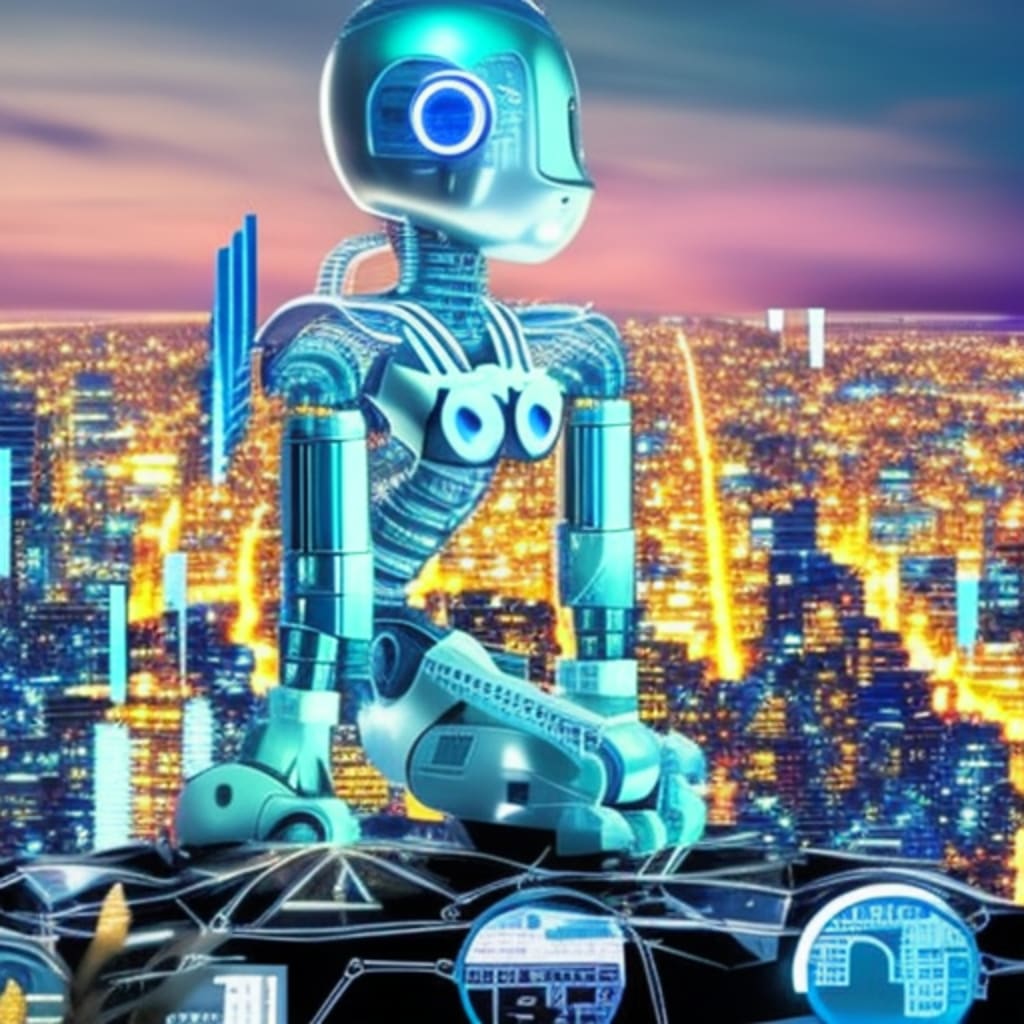The Future of Artificial Intelligence
Trends and Predictions

Artificial Intelligence (AI) has become a transformative force in our society, with its applications ranging from virtual assistants and self-driving cars to advanced data analysis and medical diagnostics. As we look to the future, it is clear that AI will continue to shape our world in profound ways. In this article, we will explore some of the key trends and predictions for the future of artificial intelligence.
1. Continued Growth and Advancements
One undeniable trend is the continued growth and advancements in AI technology. Over the years, AI has evolved from rule-based systems to machine learning algorithms and deep learning neural networks. This trend is expected to accelerate, leading to even more sophisticated AI systems capable of complex tasks. We can anticipate breakthroughs in areas such as natural language processing, computer vision, and reinforcement learning.
2. Ethical Considerations and Regulation
As AI becomes more pervasive, ethical considerations and regulation will play a critical role in shaping its future. The potential impact of AI on privacy, bias, and job displacement has raised concerns among policymakers and the public. In response, we can expect increased efforts to establish ethical guidelines and regulations governing AI development and deployment. This may include transparency requirements, accountability mechanisms, and frameworks for addressing bias and discrimination.
3. Human-AI Collaboration
Rather than replacing humans, AI is likely to augment human capabilities and enable new forms of collaboration. We are already witnessing the rise of human-AI teams in various domains, such as healthcare, finance, and creative industries. In the future, AI systems will become even more proficient at assisting humans in complex decision-making, providing valuable insights and automating routine tasks. This collaboration will lead to enhanced productivity and innovation across industries.
4. Edge Computing and AI at the Edge
Edge computing, which involves processing data closer to the source rather than in the cloud, is poised to revolutionize AI deployment. By bringing AI capabilities to edge devices such as smartphones, IoT devices, and autonomous vehicles, we can overcome challenges related to latency, bandwidth limitations, and data privacy. This trend will enable real-time AI applications, enhance user experiences, and open up new possibilities for AI-powered solutions in remote areas with limited connectivity.
5. Responsible AI and Explainability
As AI systems become increasingly complex and autonomous, the need for responsible AI and explainability becomes crucial. Explainable AI refers to the ability of AI models to provide transparent explanations for their decisions and actions. This is particularly important in critical domains like healthcare and finance, where the ability to understand and trust AI recommendations is paramount. The development of explainable AI algorithms and methods will be pivotal in ensuring accountability, fairness, and trust in AI systems.
6. AI for Social Good
In the future, we can expect a growing emphasis on leveraging AI for social good. AI has the potential to address some of the world's most pressing challenges, including healthcare accessibility, climate change, poverty, and education. Initiatives focused on using AI for social impact, such as precision medicine, disaster response, and sustainable resource management, will gain traction. Collaborations between AI researchers, policymakers, and social organizations will be essential in harnessing AI's power for positive change.
In conclusion, the future of artificial intelligence holds immense potential and exciting possibilities. With continued advancements, ethical considerations, and human-AI collaboration, AI will continue to transform industries and enhance our daily lives. Edge computing and responsible AI will enable new applications and ensure transparency and accountability. Moreover, leveraging AI for social good will address global challenges and create a more inclusive and sustainable future. As we navigate this evolving landscape, it is crucial to shape AI development and deployment in a way that aligns with our values and aspirations.
About the Creator
Harsh Master
An upcoming first-year student enthusiastic about the latest technology and related fields.
A self-taught Python and Android programmer along with a decent knowledge of web development.
A curious Cyber Security learner and video editor.






Comments
There are no comments for this story
Be the first to respond and start the conversation.